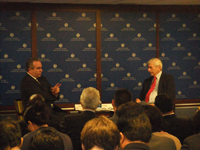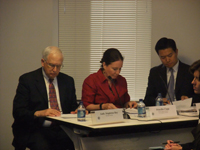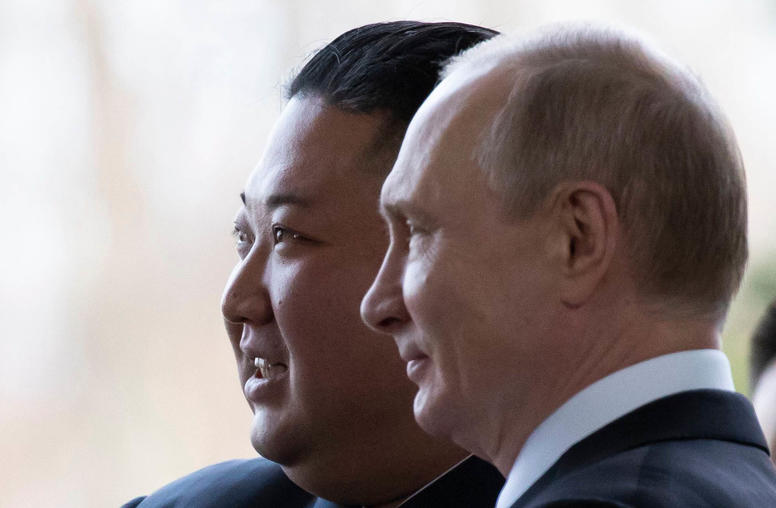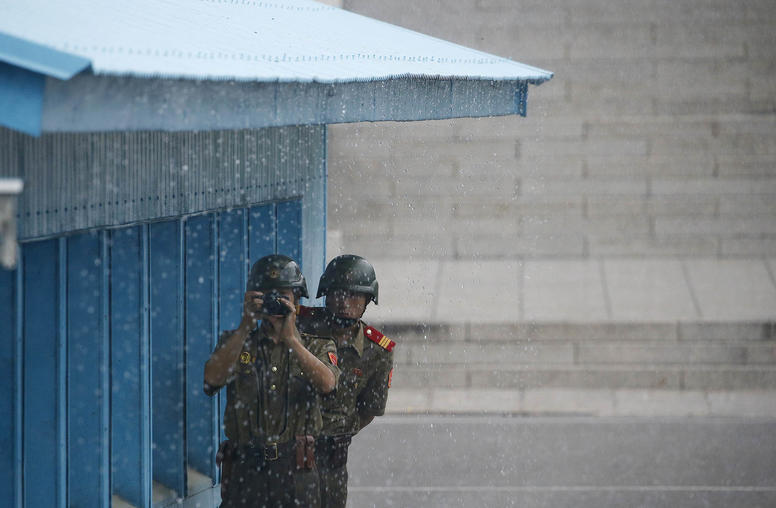Assistant Secretary of State Kurt Campbell on Next Steps in Engaging the Asia-Pacific Region
Assistant Secretary of State Kurt Campbell joined USIP President Richard H. Solomon to discuss the Obama administration's next steps in the Association of Southeast Asian Nations (ASEAN) region.
Senior U.S. Official Discusses Policies on North Korea, Burma, China
 On September 16th, Assistant Secretary of State for East Asian and Pacific Affairs Kurt Campbell spoke about the United States’ next steps in engaging countries in the Asia-Pacific region. USIP President Richard H. Solomon introduced Campbell, and Marvin Kalb, from Harvard’s John F. Kennedy School of Government and a visiting expert to USIP, moderated the discussion.
On September 16th, Assistant Secretary of State for East Asian and Pacific Affairs Kurt Campbell spoke about the United States’ next steps in engaging countries in the Asia-Pacific region. USIP President Richard H. Solomon introduced Campbell, and Marvin Kalb, from Harvard’s John F. Kennedy School of Government and a visiting expert to USIP, moderated the discussion.
While Afghanistan is a top U.S. foreign policy priority, the United States recognizes the Asia-Pacific region’s growing international influence, and is stepping up its regional engagement, Campbell told the USIP audience. Campbell pointed out that the 2+2 meetings in Seoul that Secretary of State Hillary Clinton and Secretary of Defense Robert Gates held with their South Korean counterparts, and Secretary Clinton's speech at the Association of Southeast Asian Nations (ASEAN) Regional Forum in Hanoi in July represent “the tempo that is now required.”
On China’s rise, Campbell pointed out that China’s growing role on the international stage came with growing responsibilities and that the United States sought to cooperate with China on dealing with global challenges. With respect to the United States’ efforts to engage Burma, Campbell stated that “in almost every arena, we have been disappointed.” He emphasized, however, that engagement was the best option as the country prepares for controversial elections. On the North Korean nuclear issue, Campbell mentioned that he welcomes C hina’s efforts to restart the Six-Party Talks and that North Korea had to implement its obligations under the September 2005 Joint Statement of Principles.
hina’s efforts to restart the Six-Party Talks and that North Korea had to implement its obligations under the September 2005 Joint Statement of Principles.
Ambassador Stapleton Roy, director of the Kissinger Institute on China and the United States at the Woodrow Wilson International Center for Scholars; Priscilla Clapp, former Chargé d'Affaires at the U.S. Embassy in Burma; and John S. Park, director of USIP’s Korea Working Group, posed questions following Campbell’s remarks.
This event featured the following speakers:
- The Honorable Kurt Campbell, Keynote Speaker
Assistant Secretary of State for East Asian and Pacific Affairs U.S. Department of State - Richard H. Solomon, Introduction
President U.S. Institute of Peace - Marvin Kalb, Moderator
Visiting Expert U.S. Institute of Peace - Ambassador Stapleton Roy, Respondent Director,
Kissinger Institute on China and the United States Woodrow Wilson International Center for Scholars - Priscilla Clapp, Respondent
Former Charge d'Affaires U.S. Embassy in Burma - John S. Park, Respondent Director,
Korea Working Group U.S. Institute of Peace



